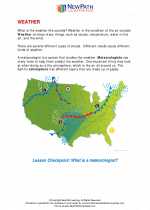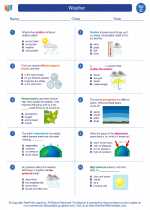Sound Energy
Sound energy is a form of energy that is produced by the vibration of an object. These vibrations create sound waves which travel through mediums such as air, water, or solids. Sound energy is a type of kinetic energy, as it is produced by the movement of particles.
Properties of Sound Energy
Sound energy has several important properties:
- Frequency: This refers to the number of vibrations per second and is measured in hertz (Hz). Higher frequencies result in higher-pitched sounds, while lower frequencies produce lower-pitched sounds.
- Amplitude: This is the measure of the energy of the sound wave and determines the volume of the sound. Greater amplitude results in louder sounds.
- Wavelength: The distance between two consecutive points of a wave with the same phase, such as peak to peak or trough to trough.
- Speed: The speed of sound varies depending on the medium through which it is traveling. In general, sound travels faster through solids than liquids, and faster through liquids than gases.
Production and Transmission of Sound Energy
Sound energy is produced when an object vibrates, creating disturbances in the surrounding medium. These disturbances travel as waves, carrying the energy of the sound. When the waves reach our ears, they cause our eardrums to vibrate, which our brain interprets as sound.
Applications of Sound Energy
Sound energy has numerous practical applications, including:
- Communication: Sound energy is used for speech, music, and other forms of human communication.
- Medical Imaging: Techniques such as ultrasound use sound waves to create images of internal body structures.
- Sonar: This technology uses sound waves to detect and locate objects underwater, and is used in applications such as navigation and fishing.
- Entertainment: Sound energy is essential for creating music, movies, and other forms of entertainment.
Study Guide
To understand sound energy better, consider the following study guide:
- What is sound energy, and how is it produced?
- What are the properties of sound energy, and how do they affect the sound we hear?
- How does sound travel through different mediums, and what factors affect its speed?
- What are some practical applications of sound energy in our daily lives?
- Perform experiments to observe the properties of sound energy, such as the effect of amplitude on volume, or the behavior of sound waves in different mediums.
By exploring these questions and concepts, you will gain a deeper understanding of the fascinating world of sound energy.
.◂Science Worksheets and Study Guides Third Grade. Weather

 Worksheet/Answer key
Worksheet/Answer key
 Worksheet/Answer key
Worksheet/Answer key
 Worksheet/Answer key
Worksheet/Answer key
 Vocabulary/Answer key
Vocabulary/Answer key
 Vocabulary/Answer key
Vocabulary/Answer key
